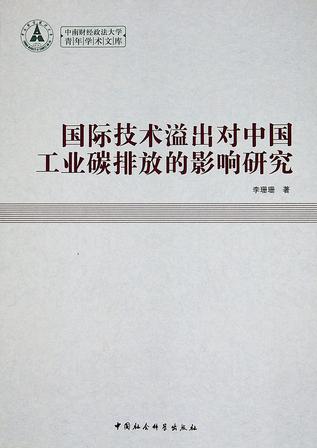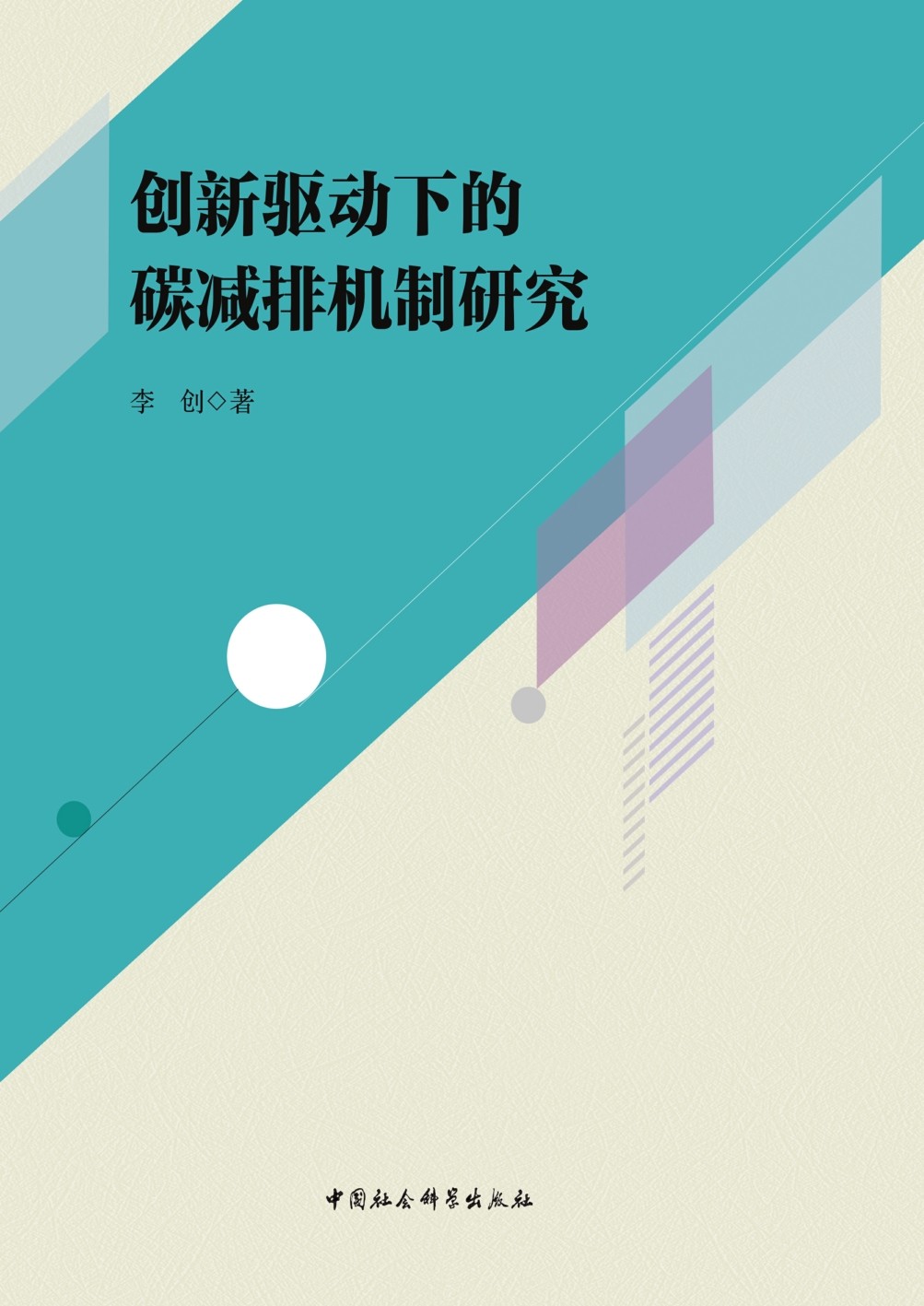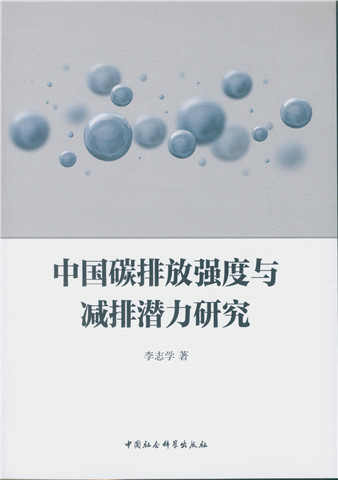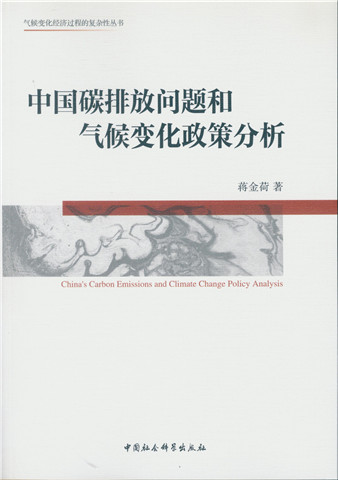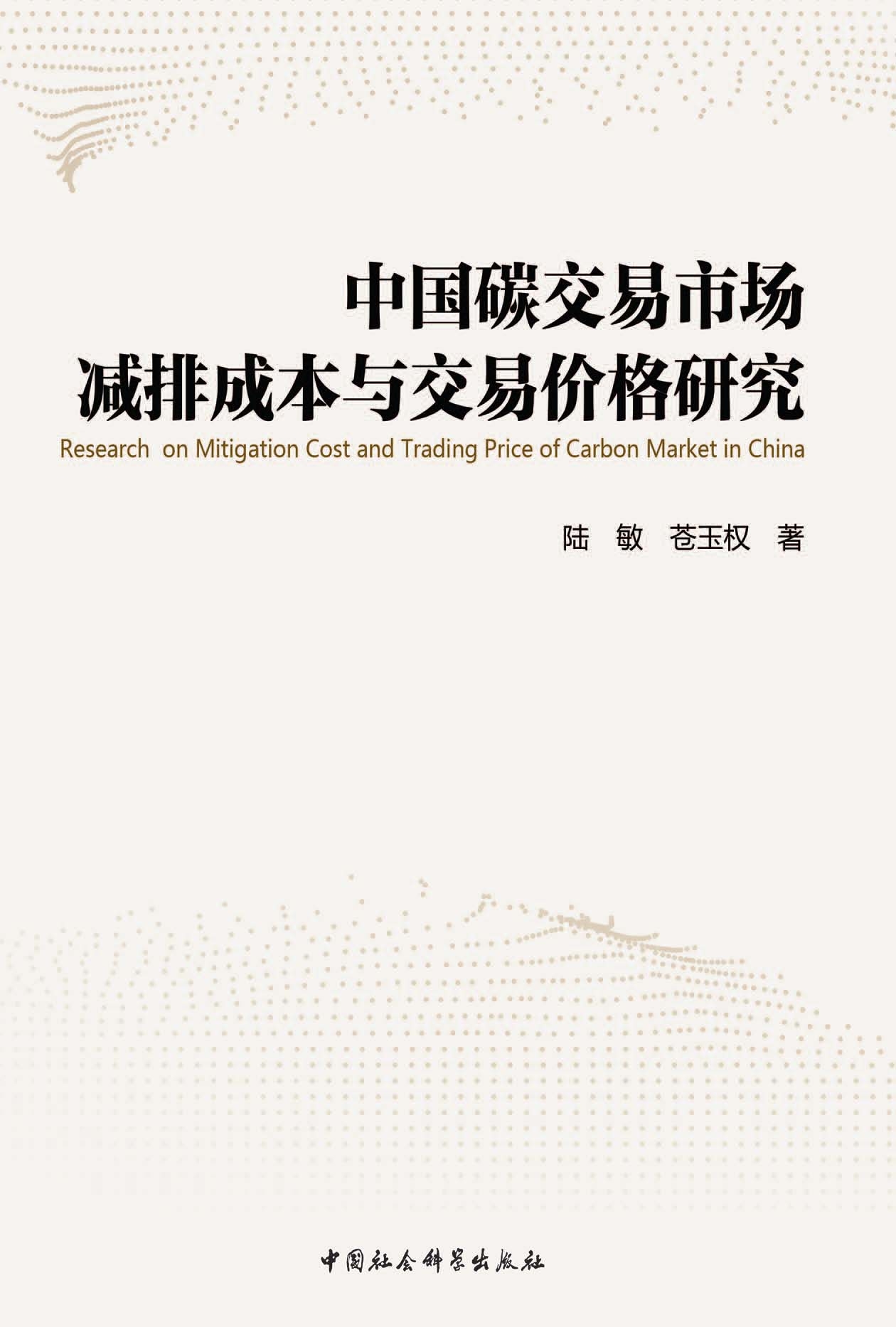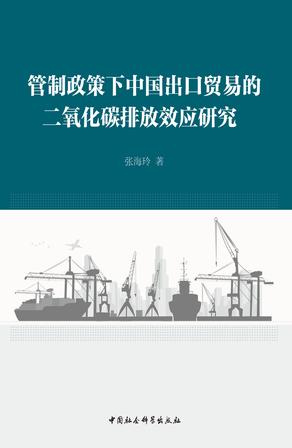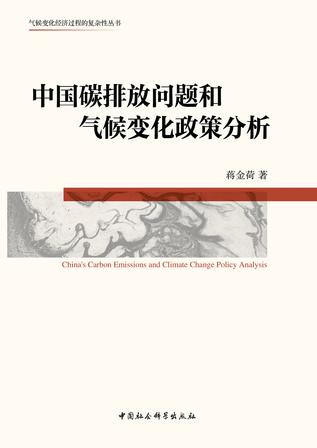内容简介
作者简介
目录
Scholars at home and abroad have made lots of researches on the effects of FDI and international trade on the carbon emission of host country,and they discussed that FDI and international trade mainly through the influence of scale effect,composition effect and technical effect on carbon emission of host country.Based on this,Scholars abroad have made further studies on the different technical effects of different international spillover channels on the carbon emission of host country,however,seldom domestic studies is on this topic,only one or two papers has preliminarily investigated this topic from the perspective of technology horizontal spillover channel from FDI,therefore this paper takes China industry as sample to extend and resupply,and makes systematic and in-depth study of inner mechanism of the effects of international technology spillovers on the carbon emission of industrial energy consumption in China,which has deep theoretical value.The Twelfth Five-Year Plan proposes the state strategy about how to cope with the international climate change,which means that China should make full use of technology advancement,improve system mechanism and policy system,and carry out pragmatic cooperation in scientific research,technology research and development and capacity building through strengthening international exchange in the field of climate change.It has become a general consensus that middle-long period carbon emission reduction of energy consumption could be enhanced through technology innovation of low carbon.The main problems exists in the field of carbon emission reduction of industrial energy consumption recently in China are as follows.Firstly,the high carbon lock-in effect universally exists in industrialized countries.Secondly,the technology innovation basis of low carbon is weak,nearly seventy percent of core technology types of low carbon relies on the import.Thirdly,technology innovation path of low carbon is separated from the economic condition in China.All of these cause the dilemma of the insufficient of technology innovation ability of low carbon,if China could pay attention to the optimization of the technology paths during the course of international transfer and diffusion of technology of low carbon,this dilemma could be alleviated.Based on this point,this paper studies the policy transition,objectives and contents which do benefits to optimize the paths of carbon emission of industrial energy consumption reduction technology innovation from the perspective of international technology spillover channels in China.The content of this paper is mainly surrounding the following aspects:Firstly,this paper tries to review the basis of theoretical research related with Low-Carbon economics,summarizes and comments the literatures and research progresses in the fields of the researches on the effects of technology advancement on ecological environment,and the effects of FDI and international trade on ecological environment.Secondly,this paper analyzes the inner mechanism of the effects of international technology spillovers on carbon emission of industrial energy consumption,builds up a general equilibrium model to make an in-depth analysis.Thirdly,this paper estimates the current situation of carbon emission of industrial energy consumption from multiple angles,including carbon emissions of industrial energy consumption,carbon emission intensity of industrial energy consumption,carbon emission performance of industrial energy consumption,carbon emissions embodied in the trade,low-carbon economy index and driving forces of carbon emissions of industrial energy consumption.Fourthly,carbon emission intensity of industrial energy consumption is used to characterize industrial carbon emission reduction technology,and this paper examines the effects of technology spillovers from FDI and international trade on industrial carbon abatement based on the panel data from industrial sectors.Besides,this paper examines the technical effects of FDI on carbon emissions embodied in the trade and low-carbon economy index.Fifthly,carbon emission performance of industrial energy consumption is used to characterize industrial carbon emission reduction technology,and this paper examines the effects of technology spillovers from FDI and international trade on industrial carbon abatement based on the panel data from industrial sectors and provincial industry.Specifically,this paper is divided into 7 chapters.Chapter Ⅰis introduction.This chapter presents the research background,research significance in theory and practice,proposes the research train of thought,including research objective,research skeleton,research content and research method,summarizes research innovation,and points out the future direction for further research.Chapter Ⅱ is literature review.This chapter firstly introduces the theoretic basis of Low-Carbon economics related with the research,including ecological footprint theory,decoupling theory of resources and environment and theory of the environmental Kuznets curve,neo-classic economic growth theory and endogenous growth theory that embraced the environmental factors,which reflect analysis of ecological environment and the relationship between economic development and ecological environment,then this chapter reviews and collates literatures at home and abroad about the effects of technology advancement,FDI and international trade on ecological environment respectively,based on these,this chapter also arranges the recent research findings abroad about the different technical effects of different international spillover channels on the carbon emission of host country,and domestic elementary research status.Finally,this chapter makes a brief review and research prospect.Chapter Ⅲ is inner mechanism.This chapter builds up the theoretic analysis framework of a general equilibrium about the effect of technical factor on ecological environment,the result indicates that carbon emissions is determined by the factors of economic scale,industrial structure and carbon emission intensity,based on this,this chapter sets production function into Cobb-Douglas production function form,deduces the determining factors of industrial structure and carbon emission intensity according to the condition of cost optimal decision,and substitutes the determining factors of industrial structure and carbon emission intensity into the equation which determines carbon emissions.The result directly reflects that economic scale and per capital stock has promotion effects on carbon emissions,however,independent research and development innovation,FDI,international trade and carbon emissions tax and charge have negative effects on carbon emissions.In order to further effectively distinguish the effects of FDI and international trade on carbon emission reduction,this chapter divides FDI elasticity and international trade elasticity of carbon emissions into scale effect,composition effect and technical effect respectively.Finally,this chapter makes theoretic discuss on the influence paths of technology spillovers of FDI and international trade on carbon emission of industrial energy consumption,and thus proposes hypothesis 1-7.Chapter Ⅳ is the construction,measurement and decomposition of indexes.This chapter firstly constructs the measure indexes of technology spillover path of FDI and international trade based on the input-output tables,estimates the change regulation of carbon emission of industrial energy consumption in China from multiple angles,including the indexes of carbon emissions,carbon emission intensity and carbon emission performance of industrial energy consumption,carbon emissions embodied in the trade,low-carbon economy index,and makes a further discussion about the driving forces of carbon emissions of industrial energy consumption.Results show that,first place,the year 2005 is taken as the line of demarcation of change regulation of carbon emissions of industrial energy consumption,the year before the index keeps constant,but the year after the index of most industrial sectors shows an up trend obviously.Second place,carbon emission intensity of industrial energy consumption tends to volatility-downward trend as a whole,and the index of most industrial sectors appears a slight rebound in 2004.Third place,carbon emission performance of industrial energy consumption in middle and western region is higher than the index in eastern region,among which,the improvement of carbon emission performance of industrial energy consumption in middle and western region is mainly depended on technology progress,but the improvement of carbon emission performance of industrial energy consumption in eastern region is mainly depended on technology efficiency advancement.Fourth place,the change regulation of carbon emission performance of industrial energy consumption shows obvious heterogeneous in different sectors.Then the research on the driving forces of carbon emissions of industrial energy consumption indicates that production technology effect and composition effect obviously reduce carbon emissions of industrial energy consumption,on the contrary,scale effect and compositional production technology effect evidently increase carbon emissions of industrial energy consumption,and the other factors have no evident effect on carbon emissions of industrial energy consumption.Chapter Ⅴ examines the effects of international technology spillovers on carbon emission intensity of industrial energy consumption.Firstly,the estimations of hypothesis 1-3 presented in Chapter Ⅲ refer to the train of thought of Grossman and Krueger in 1991,sets static and dynamic model in order to examine the effects of FDI technology spillovers on carbon emission abatement,and evaluates the influence of these industry characters such as research and development intensity,ownership structure and industrial structure on the effect of FDI technology spillovers on the industrial carbon abatement.Conclusions are as follows:the effect of technology horizontal spillover from FDI are not obvious,technology forward spillover from FDI lowers carbon emission intensity of industrial energy consumption in short term but obviously promotes the long-term carbon emission intensity of industrial energy consumption,but technology backward spillover from FDI decreases carbon emission intensity of industrial energy consumption,among which,research and development intensity and industrial structure have obvious promotion effects on technology vertical spillovers from FDI,while ownership structure has negative effect on technology vertical spillovers from FDI.Then the estimations of hypothesis 4-7 presented in Chapter Ⅲ are according to the similar train of thought.This chapter examines technology spillover effects of international trade on carbon emission intensity and carbon emissions of industrial energy consumption,evaluates the influence of these industry characters such as research and development intensity,ownership structure and carbon emission intensity on the effects of technology forward spillover from import and technology backward spillover from export on the industrial carbon abatement.Result shows that,technology horizontal spillover from import has significant promotion effect on carbon emission intensity of industrial energy consumption,but technology backward spillover from export has obvious negative effect on carbon emission intensity of industrial energy consumption,among which,research and development intensity and ownership structure have obvious negative effects on technology horizontal spillover from import,while ownership structure also has negative effect on technology backward spillover from export.Apart from these,FDI industrial structure plays a dominant role in the carbon emissions of China's foreign trade,more specific,the change of FDI industrial structure enhances the growth of the carbon emissions of China's foreign trade;carbon emissions embodied in the trade intensity effect of investment continues to decrease,and the declining rate becomes larger;the effect of the change of FDI quantity effect is unstable,and there are no obvious relationship between them.Meanwhile,both FDI and OFDI have promoting effects on China's low-carbon development,and the difference in these promoting effects is caused by the difference in effect pathway.Chapter Ⅵ examines the effects of international technology spillovers on carbon emission performance of industrial energy consumption.The main distinction between this chapter and Chapter Ⅴ is the different choice of index reflecting abatement technology of carbon emission level.This chapter sets model referring to train of thought of Grossman and Krueger in 1991,and estimates the effects of FDI and international trade technology spillovers on carbon emission abatement for different regions and sectors.The research result indicates that for three areas,the intensity and direction of effects appears obvious heterogeneous indifferent regions.FDI technology spillovers suppresses technology progress,but FDI technology vertical spillovers promote the advancement of technology efficiency,and the effect of FDI technology forward spillover effect is higher than the effect of FDI technology backward spillover.Technology horizontal spillover from export suppresses technology progress,but technology horizontal spillover and backward spillover from export have promotion effects on the advancement of technology efficiency.Technology horizontal spillover from import hinder the improvement of technology efficiency,but technology forward spillover from import have promotion effect on technology efficiency.Finally,this chapter illustrates the relationship among carbon emissions,carbon emission intensity and carbon emission performance,sums up the results of estimation of Chapter Ⅴ and this chapter,and makes in-depth cause analysis according to these results.Chapter Ⅶ refers to main conclusions and policy recommendations.This chapter reviews the inner mechanism of the effect of international technology spillovers on carbon emission abatement and estimation results,based on these,presents the improving path of innovation ability of low carbon in China from the perspective of international technology spillovers,which is surrounding the construction and consummation the following platforms,including “industry-education-research-application” innovation platform,industry chain integration platform and institution platform of investment and management environment in order to cultivate innovation ability of low carbon in China sustainably.It is necessary to set down equal and effective mechanism of the carbon emissions reduction,make the reasonable policy of encouraging foreign investment,enhance the improvement of low carbon technology from FDI industrial linkages channel and realize the clean production of industrial chain in order to reduce the depression of the international transfer of carbon emissions reduction,optimize industrial distribution structure and source structure of FDI,and enhances the promotion effects of FDI and international trade technology spillover on carbon emission abatement of industrial energy consumption in China to the utmost extent through the adjustment of industrial structure and regional structure of FDI and international trade.Key words:FDI;International Trade;Carbon Emission Intensity;Carbon Emission Performance;Technology Progress;Technology efficiency
全部显示∨
李珊珊,女,1980年5月出生,湖北省宜昌市人,中南财经政法大学经济学院讲师,经济学博士,已在《中国人口·资源与环境》、《科研管理》、《经济管理》、《国际贸易问题》等重要期刊上发表学术论文10余篇,并主持国家自然科学基金青年项目、中国博士后科学基金面上项目等。
第一章 导论第一节 问题的提出
第二节 研究目标、框架结构与主要内容一 研究目标
二 框架结构
三 主要内容
第三节 研究方法与技术路线一 研究方法
二 技术路线
第四节 主要创新之处与进一步研究的方向一 主要创新之处
二 进一步研究的方向
第二章 FDI、对外贸易与生态环境关系的相关研究综述第一节 与低碳经济相关的理论研究基础一 生态足迹及碳足迹理论
二 资源环境脱钩及碳脱钩理论
三 环境库兹涅茨曲线及碳库兹涅茨曲线理论
四 纳入环境因素的新古典与内生经济增长理论
第二节 技术进步对生态环境影响的相关研究综述一 基于环境效应分解模型
二 基于因素分解模型
三 基于回归模型
四 基于可计算一般均衡模型
第三节 FDI、对外贸易对生态环境影响的相关研究综述一 FDI对生态环境的影响
二 对外贸易对生态环境的影响
三 跨国外包对生态环境的影响
第四节 国际技术溢出对生态环境影响的相关研究综述一 国际技术溢出对生态环境影响的国外研究
二 国际技术溢出对生态环境影响的国内初步研究
三 简要述评与研究展望
第三章 国际技术溢出对工业能源消费碳排放影响的内在机制第一节 国际技术溢出对工业碳排放影响的内在机制:一个理论模型一 关于生产函数的基本假设
二 生产成本最小化决策
三 碳排放水平的确定
第二节 FDI技术溢出的碳减排效应分解与机制一 FDI技术溢出的碳减排效应分解
二 FDI技术溢出的碳减排效应理论机制
第三节 对外贸易技术溢出的碳减排效应分解与机制一 对外贸易技术溢出的碳减排效应分解
二 对外贸易技术溢出的碳减排效应理论机制
第四章 国际技术溢出与中国工业能源消费碳排放的测度第一节 国际技术溢出的测度一 FDI技术溢出的测度
二 对外贸易技术溢出的测度
第二节 中国工业能源消费碳排放的测度一 中国工业能源消费碳排放量的测度
二 中国工业能源消费碳排放强度的测度
三 中国工业能源消费碳排放绩效的测度
四 以中国工业行业为主导的对外贸易隐含碳排放量的测度
五 纳入中国工业能源消费碳排放的低碳经济水平测度
第三节 中国工业能源消费碳排放驱动因素的测度一 环境效应分解模型的拓展
二 规模效应、结构效应、技术效应的测度:描述统计
三 规模效应、结构效应、技术效应的测度:不同时间段
四 规模效应、结构效应、技术效应的测度:不同碳排放组别
五 小结与启示
第五章 国际技术溢出与中国工业能源消费碳排放量及强度关系的实证研究第一节 FDI技术溢出与中国工业能源消费碳排放强度一 静态模型的设定
二 动态模型的设定
三 研究方法、变量与数据说明
四 FDI技术溢出对工业行业碳排放强度的影响
五 吸收能力的行业异质性影响FDI技术效应的检验
六 小结与启示
第二节 对外贸易技术溢出与中国工业能源消费碳排放强度一 研究模型的设定
二 研究方法、变量与数据说明
三 对外贸易技术溢出对工业行业碳排放强度的影响
四 吸收能力的行业异质性影响对外贸易技术效应的检验
五 小结与启示
第三节 FDI技术溢出与中国对外贸易隐含碳排放一 相关性描述
二 研究模型、方法与数据说明
三 环比指数与环比增加值的数据分析
四 小结与启示
第四节 国际技术溢出与中国低碳经济水平一 研究模型、方法与数据说明
二 国际技术溢出与中国低碳经济水平
三 国际技术溢出与中国低碳经济发展的影响路径
四 小结与启示
第六章 国际技术溢出与中国工业能源消费碳排放绩效关系的实证研究第一节 国际技术溢出与中国工业能源碳排放绩效一 研究模型的设立
二 研究方法、变量与数据说明
三 国际技术溢出对省际工业碳排放绩效的影响
四 小结与启示
第二节 FDI技术效应与中国工业能源消费碳排放绩效一 研究模型的设立
二 研究方法、变量与数据说明
三 FDI技术溢出对工业行业碳排放绩效的影响
四 行业特征影响FDI技术效应的检验
五 小结与启示
第三节 对外贸易技术效应与中国工业能源消费碳排放绩效一 研究模型的设立
二 研究方法、变量与数据说明
三 对外贸易技术溢出对工业行业碳排放绩效的影响
四 行业特征影响对外贸易技术效应的检验
五 小结与启示
第四节 计量结果的比较与影响路径分析一 计量结果的比较分析
二 国际技术溢出的影响路径分析
第七章 主要研究结论与政策建议第一节 主要研究结论
第二节 政策建议一 以“产学研用”创新平台全方位支撑低碳技术创新能力的培养
二 打造一体化程度较高的产业链,促进创新资源的纵向整合
三 最大限度地发挥国际技术溢出对碳减排的积极效应
四 营造公开、公平、公正的制度环境与市场投资经营环境
主要参考文献
后记
